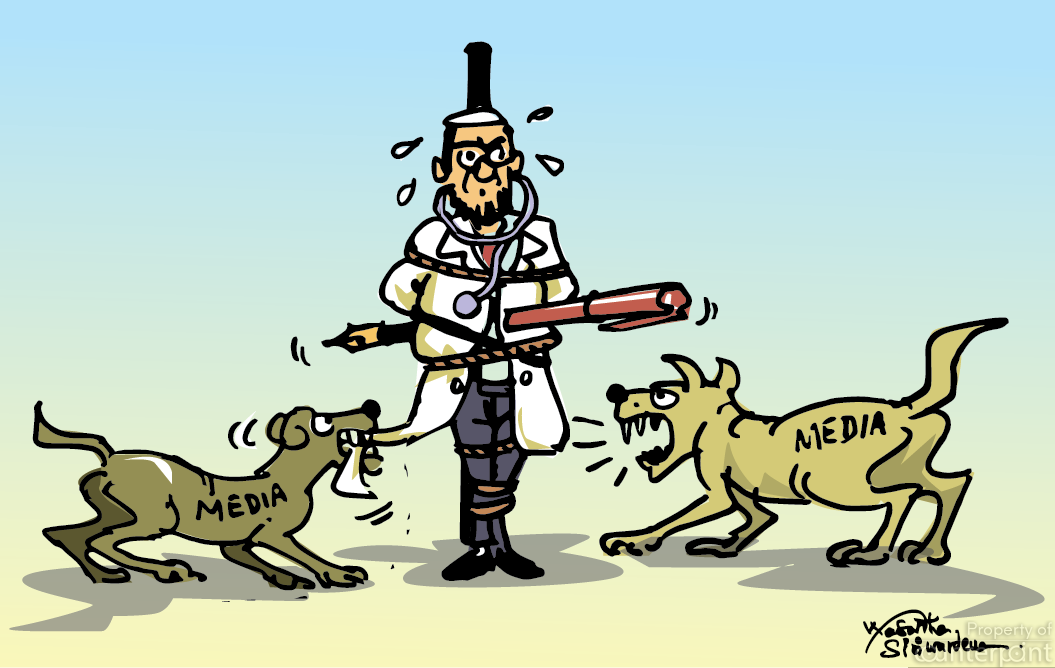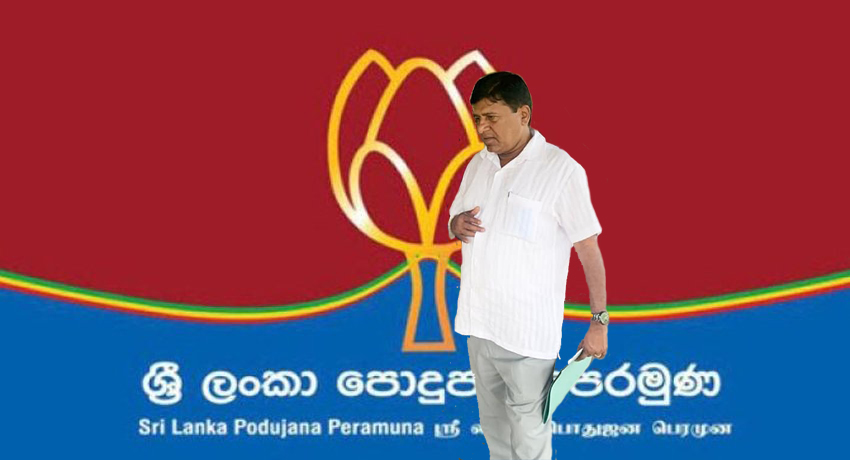Sri Lanka’s media has morphed from being at the receiving end of various forms of harassment to one that is leading the persecution of others.
There was a time not too long ago when members of the media profession acted very prudently, afraid to report or critique the actions of government.
That is except for a handful of journalists who, despite the consequences continued to raise awareness on various social and human rights issues.
During the former regime many faced harassment and physical abuse; some survived with life-long injuries, some were killed and several went into exile.
However, it was not just during the previous regime that media practitioners faced threats.
In the past nearly thirty five years, journalists have been killed, maimed, abducted and disappeared with no real action by successive governments to arrest the trend.
The worst period of course was between 2006 and 2015.
Even through those times of serious persecution there were several journalists and media personalities who jumped on the government band wagon to throw mud at their own colleagues and label them “terrorists.”
There were character assassinations, false allegations and even inciting the arrest of some.
It was not easy being a journalist during those dark times.
But today, media has become a monster itself, tearing up the fabrics of civil society, carrying on regardless of whom they destroy.
At an eatery in Colombo, the writer recently heard a man state that he worshipped Zaharan (the leader behind the Easter Sunday massacre) daily. “If not for him, we would not have known about all those swords and knives that were being amassed”, he said.
The fake news spread about Muslims these past years reached a crescendo following the Easter Sunday massacre, with TV channels outdoing each other and print media joining in the fray to portray that community as the evil other. Well-known members of the community too came under vicious attack.
Then came the Dr. Shafi Shihabdeen affair, where a leading print media organization alleged he had rendered infertile, thousands of Sinhala women. TV channels picked up the story. Despite several other media organizations and on-line publications reporting more balanced stories about it, and even the CID informing the Courts that the allegations were baseless, the public refuse to believe any of those, but the first false information they heard.
Social media is not innocent either, spreading fake news and promoting hate. However, unlike mainstream media, there are hardly or no set rules that one must adhere to. Even as the more civic minded folk either delete or ignore hate messages, scores of others simply forward or share them; and there is no telling who or where the message reaches. The government’s only action is to temporarily block this mode of communication.
With the change in government in 2015, media organizations began to enjoy a new found freedom; the freedom of expression. With no white vans to abduct them, or silence them in any other way, mainstream media practitioners and citizen journalists now enjoy the freedom of the jackass.

At an open forum organized by the Free Media Movement on “Fake News, Hate Speech and Freedom of Expression, at the Sri Lanka Press Institute recently, veteran journalist and former Editor of the Ravaya, Victor Ivan expressed his disgust and disappointment at what passes for journalism today. “Media is extremely powerful but its destructive behaviour is worse than that of the politician,” he charged. The two parts of society that is leading the country on its destructive path are the media and the clergy, he said.
It was the media, he reminded the gathering, that portrayed women working in garment factories and employed in Middle Eastern countries in a bad light, publishing derogatory commentary about them. It resulted in many not wanting to even divulge to their potential marital partners where they worked, he said.
Ours is a society made up of unscrupulous professionals, be they doctors, lawyers, accountants or media practitioners he alleged, adding that they are all rotten to the core, and have lost the respect of society. Journalism as practiced in Sri Lanka is sans standards and dignity, he pointed out.
In his work through the Punarudaya movement, which takes him to every corner of the country, he has found that there is anger against the media. “People watch TV with anger.”
Across the country, there is a strong trend seeking a change in the political culture. “But, if the country is to change, it must have a civilised media.”
Certainly the time has come for media organizations to turn the searchlight inwards. Instead of simply reporting the news and leaving it to viewers to make informed decisions, today’s media houses openly promote their own agendas with no concern about the damage it does to society and the country. It has become the leader in creating hysteria amongst media consumers.
We need not look any further, the Dr. Shafi case and the exhibition of exaggerated quantities of weapons allegedly collected by Muslims is an example of a media that conducts its trade with no regard to professional ethics. The damage caused to the community will last a life time, while media continues to act with impunity.
What is more disturbing is the lackadaisical attitude of the Editors Guild and the Broadcasters Guild of Sri Lanka. Despite the lofty ideals set in the Code of Ethics, most of the perpetrators are members of the two Guilds; yet, no punitive action seems to be taken to deter them.
For long, media practitioners have guarded their right to self-regulate. However, it is time the industry asked itself whether it practises self-regulation in its true spirit. Or, has it become the leader in publishing and broadcasting misinformation under the guise of freedom of expression?
Will a time come when the government steps in to regulate the media? Or as Victor Ivan warned, would the public take matters into their hands and simply stop watching TV, reading the newspapers or even storm media houses, to indicate their disgust for what passes for journalism today?





